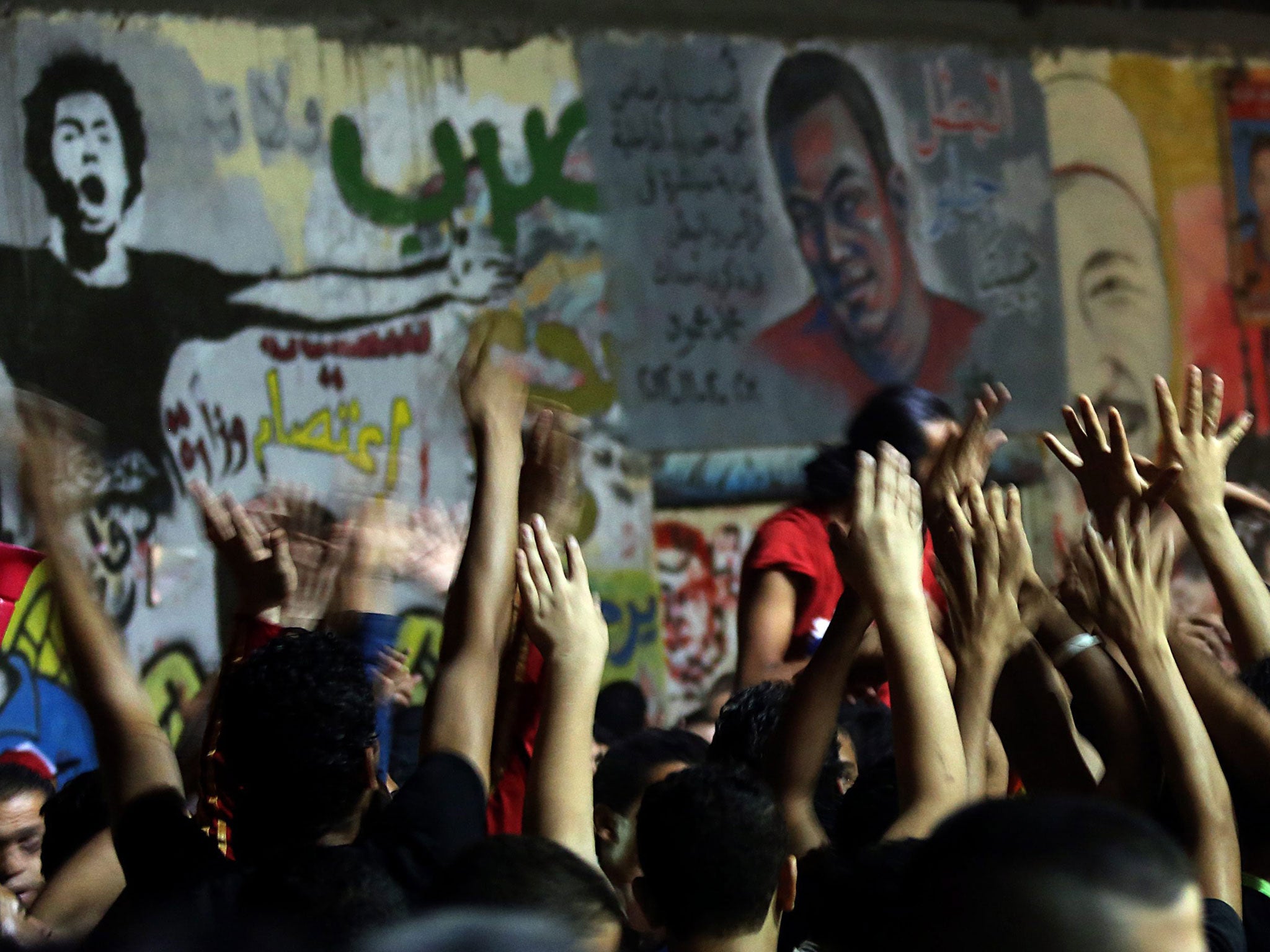Egypt’s liberals seek to ban political Islamists from power
Coalition that united to remove Morsi from power looks to turn the screw on Muslim Brotherhood

A growing backlash against Egypt’s political Islamists looked set to intensify over the coming weeks as the nation’s revolutionary forces outlined demands to ban religious parties and outlaw political campaigning from mosques.
Fuelled by a climate of resurgent nationalism that has emerged since the army toppled president Mohamed Morsi earlier this month, and which has seen hundreds of Muslim Brotherhood supporters arrested, many of the nation’s liberal and secular factions are seeking to turn the screw further on Islamist groups by attempting to erase religion from the party political sphere.
The demands threaten to undermine the fragile coalition of liberals and ultra-conservatives that united to topple Morsi, and will further anger Brotherhood supporters marginalised by the removal of their leader.
“We have a major problem with any political party which is strictly based on religious foundations,” said Ahmed al-Hawary, a founding member of the liberal Al-Dostour Party. “I think the idea of having these parties is not one that should be accepted.”
The development came as a 10-member committee charged with amending Egypt’s constitution met for the first time yesterday.
In what represents one of the key initial phases of the national transition process, the panel – which consists of legal experts and senior judges – has one month to come up with suggested changes.
Some of the revolutionary forces who supported the toppling of Mohammed Morsi are hoping their demands relating to the sidelining of political Islam can be worked into the revised constitution.
One of the reasons for their insistence lies in a purely ideological aversion to mixing politics and theology. But there are also pragmatic considerations. There exists a belief that the power accumulated by Egypt’s Islamists over the past two years – and the opposition’s inverse failure to claim an electoral foothold – was a result of their ability to mobilise along religious lines.
“This has been a pattern since the revolution in January 2011,” said Shady al-Ghazaly Harb, a senior figure from one of the leading coalitions behind the June 30 revolt. “It’s a major concern for all of us who are not related to political Islam.”
“Egyptians are quite a religious people, so playing with such feeling is not a proper thing and should not be considered fair game between us and the Islamists.”
The 1971 constitution which was in place until the toppling of Hosni Mubarak already contained an article explicitly outlawing religious parties.
After taking power in February 2011, Egypt’s generals issued a constitutional declaration featuring the same stricture. In spite of this ban, the fundamentalist Al-Nour Party was given permission to establish itself – leading to suspicions of a clandestine military-Islamist deal among some activists.
Last year, when an Islamist-dominated assembly rewrote Egypt’s national charter, the provision was then modified.
It is unclear exactly how any of the new demands relating to political Islam would be codified and implemented.
Mr el-Ghazaly Harb said the rules on mosque propaganda could be enforced by the security services working in co-ordination with government ministries.
The coalition now aligned against the Brotherhood supported the huge protests that eventually led to the army forcing Morsi’s removal from power. The army’s involvement led to accusations of undemocratic behaviour.
According to Zaid al-Ali, a Cairo-based constitutional expert, Egypt’s new power-brokers are guilty of exactly the same behaviour they once decried in the Brotherhood. “The problem is that we have one group of people adopting a constitution against another group of people,” he said. “It won’t achieve anything positive.”
Supporters of the Muslim Brotherhood took to the streets once again yesterday to rally against what they view as an illegitimate coup against the democratically-elected Presidency of Mohamed Morsi.
The Brotherhood’s political wing, the Freedom and Justice Party (FJP), was scrupulously careful not to identify itself in explicitly religious terms when it was founded following Mubarak’s ouster in 2011.
Even so, liberal politicians told The Independent they hoped new legislation might make it possible to outlaw the party.
Walid el-Haddad, an official from the FJP, said he would not comment because he rejected the entire transitional process.
“This government arrived on tanks,” he said.
Subscribe to Independent Premium to bookmark this article
Want to bookmark your favourite articles and stories to read or reference later? Start your Independent Premium subscription today.

Join our commenting forum
Join thought-provoking conversations, follow other Independent readers and see their replies